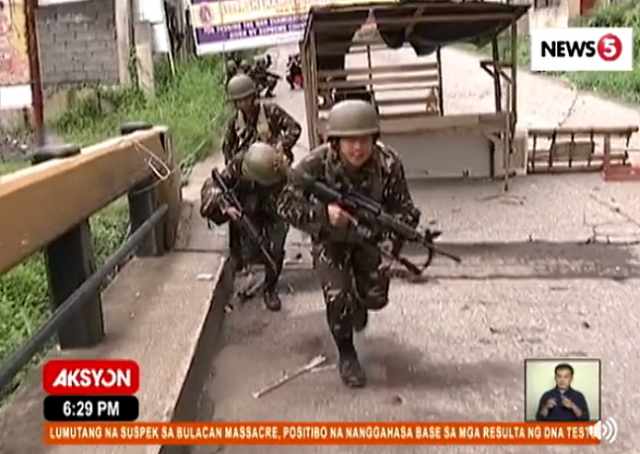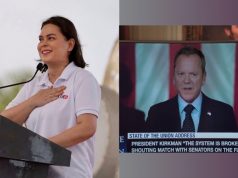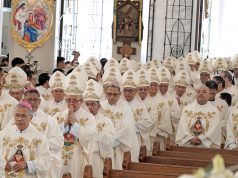
MANILA – Any extension of martial law must not exceed the original 60-day period as provided by the 1987 Constitution, according to Senate Minority Leader Franklin M. Drilon, who had earlier prodded the Executive to give Congress its formal request for extension – assuming it wants one – before the lapse of Proclamation 216’s effectivity on July 22.
“Given that the 1987 Constitution places utmost importance on our systems of checks and balances, any notion of perpetual or even a five-year Martial Law rule in any part of the country can never be allowed under the fundamental law,” he stressed.
He was apparently alluding to reports quoting Speaker Pantaleon Alvarez that a five-year state of martial law might be needed. Alvarez has since clarified that Congress is not preempting the Executive, and will certainly exercise its review mandate in case the President asks for an extension of the original 60-day martial law imposed over Mindanao on May 23, 2017, when the Marawi siege began.
Drilon, a former Senate President, said Sunday, “We cannot have an unlimited or ‘unli’- Martial Law in Mindanao.”
According to Drilon, any extension of martial rule must not go beyond 60 days “in accordance with the intentions of the framers of the 1987 Constitution.”
“Any declaration of Martial Law must be regularly reviewed, since it is the spirit of the present Constitution that that specific power of the President must be subject to a regular review. It should never be perpetual or even too long,” said Drilon, a former justice secretary, in an interview with DZBB radio.
.
He noted that Section 18 of Article VII of the 1987 Constitution allows the President to place any part of the country under martial law for a period not exceeding sixty (60) days.
“We cannot ignore that the Constitution itself calls for a limited, and a regular review, of Martial law,” he added.
“So unlike ‘unli-rice,’ there can be no ‘unli-Martial Law,’” he quipped.
The senator also stressed that under the Constitution, it is ultimately Congress which will approve any possible extension of Proclamation 216.
“It is precisely [because] of our system of checks and balances that the duration of any declaration of martial law has been limited, and that any possible extension is subject to review and deliberation of Congress in joint session,” he said.
Drilon then said that he and the rest of the minority senators will support any proposed resolution to “immediately convene Congress in joint session to hear the explanations of the executive branch on the extension of Martial Law.”
“We are ready to listen to the explanations of the Secretary of National Defense, the Armed Forces of the Philippines Chief of Staff, and other members of the executive branch. We will listen, and see if indeed there is enough justification to warrant the extension of Martial Law in Mindanao,” he concluded.
Drilon had also once suggested that if the Executive can give its request for extension in timely fashion or before the lapse of ML on July 22, then Congress convened in joint session for the State of the Nation Address (SONA) on July 24 could at least start discussions on the extension.









